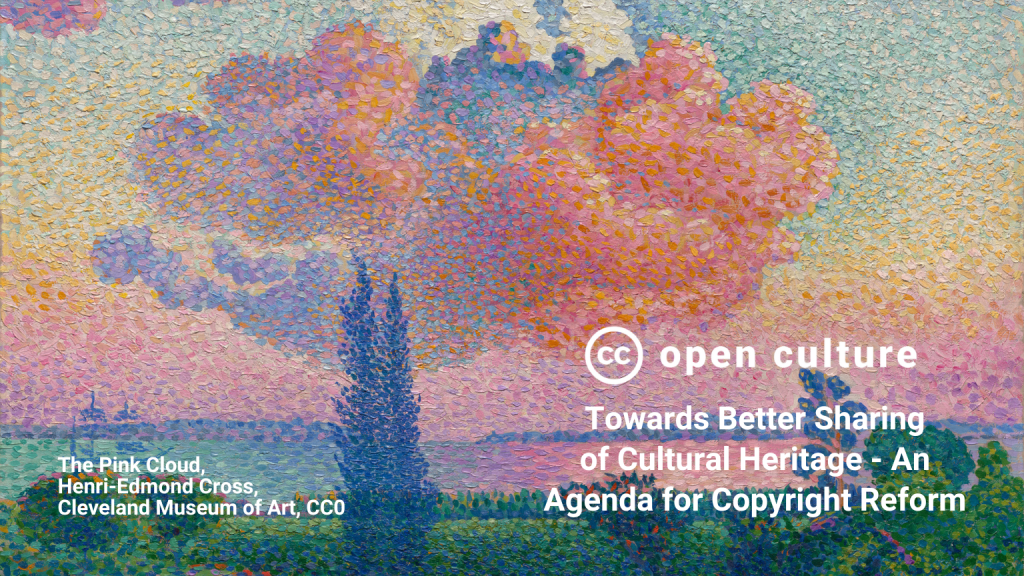CC publishes policy paper titled Towards Better Sharing of Cultural Heritage — An Agenda for Copyright Reform
Open Culture
Over the past few months, members of the Creative Commons (CC) Copyright Platform along with CC friends from around the world have worked together to develop a policy paper addressing the key high-level policy issues affecting access and sharing of cultural heritage, notably by galleries, libraries, archives and museums (GLAMs). In this blog post, we provide some background on the paper and share a few highlights.
Policy at Creative Commons
CC strives to influence global policy to ensure better sharing of creative content and to bring down the copyright barriers to universal access and reuse of knowledge and culture, including the cultural heritage held in GLAMs. As part of our Open Culture Program, we work to ensure that the interests, concerns, and needs of the public and GLAMs in fulfilling their public-interest mission are balanced with those of rights holders in a fair manner.
We developed this paper to provide a global, condensed reference point for CC’s advocacy work in copyright reform in the cultural heritage context. We hope it will support members of the CC community in their own advocacy efforts, guide policymakers in their legislative processes, and inform anyone interested in the policy issues gravitating around access and reuse of culture and cultural heritage.
Paper highlights
The paper offers an extensive overview of copyright challenges to the legitimate activities of GLAMs, notably preservation (largely through digitization) and sharing of digital and digitized content images and data for access, use and reuse. It also notes copyright’s chilling effects in the face of the GLAM sector’s general risk aversion. The paper then provides insights towards effective copyright reform addressing those challenges, with a focus on the opportunities related to the digital environment. The proposals for reform are geared towards legal certainty, international harmonization, and as a means to facilitate cross-border transactions.
The paper recognizes the pivotal roles of GLAMs in preserving and providing access to knowledge and culture to all members of society. It calls for policies that support better sharing of cultural heritage in the public interest.
Posted 04 April 2022Read the full paper here and stay tuned for an exciting event building on this paper coming soon!
